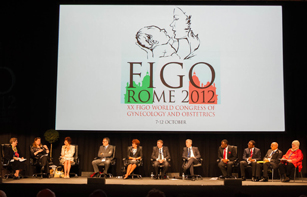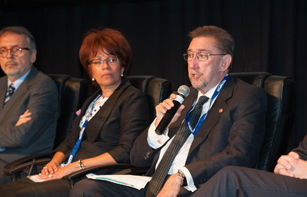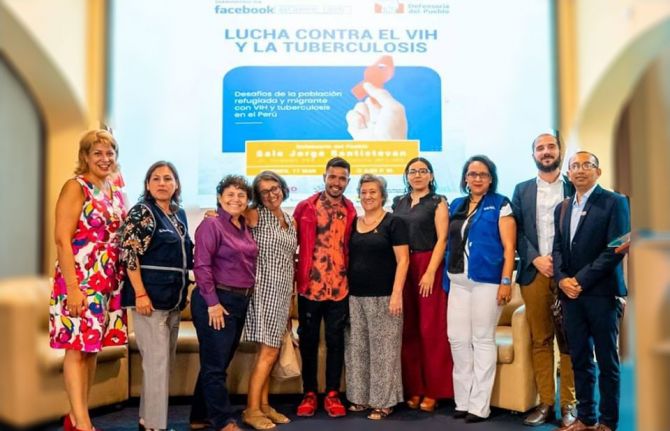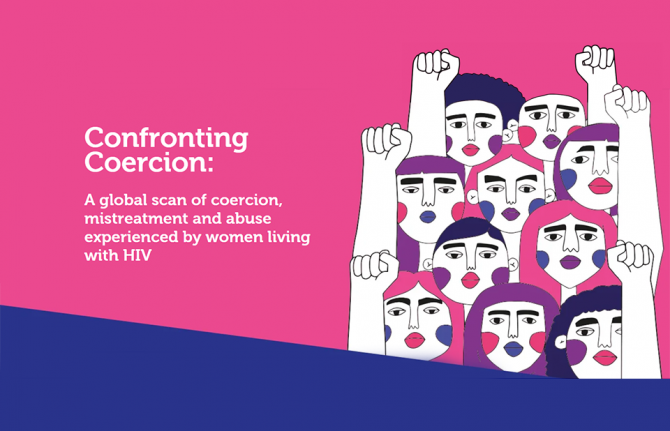
Feature Story
FIGO 2012 discusses role of professional organisations in upholding patients’ rights
09 October 2012
09 October 2012 09 October 2012
Panellists participating in the FIGO session titled “The Role of Professional Organisations in Accelerating Progress on Health-Related Millennium Development Goals”. 08 October 2012. Rome, Italy.
Credit: FIGO
The 2012 World Congress of the International Federation of Gynaecology and Obstetrics (FIGO) brought to Rome, Italy, thousands of participants to discuss ways to improve women's health, reduce infant and maternal mortality and promote the right to sexual health. Held every three years since the FIGO was founded in 1954, the Congress is a platform for analysing and discussing new medical discoveries to raise the standards of practice in obstetrics and gynaecology as well as to promote the wellbeing of women.
Speaking at a session on 8 October titled “The Role of Professional Organisations in Accelerating Progress on Health-Related Millennium Development Goals”, UNAIDS Deputy Executive Director, Programme, Dr Paul De Lay highlighted that professional organisations such as FIGO are uniquely placed to take the lead against the mistreatment of patients, especially marginalized women and women living with HIV.
“Professional health organisations have enormous political power, especially where it matters, at the community level,” said Dr De Lay. “What the healthcare worker says is accepted and trusted by communities, and professional organisations are uniquely placed to harness that power,” he added.
What the healthcare worker says is accepted and trusted by communities, and professional organisations are uniquely placed to harness that power
UNAIDS Deputy Executive Director, Programme, Dr Paul De Lay
According to participants at the session, patient rights and, particularly in the case of MDG6, the rights of women living with HIV are often ignored. Women living with HIV face enormous challenges in accessing health services. The example of forced sterilisations was mentioned as perhaps the most serious breach of fundamental human rights of women and a cause of major concern among all panellists. Since 2008, cases of forced sterilisation of women living with HIV have been reported, in Chile, the Dominican Republic, Kenya, Mexico, South Africa, Venezuela and Zambia, amongst others.
Participants agreed that, failure to address these challenges will result in less women coming forward to access HIV services, less women staying within services and retained on antiretroviral therapy and less women accessing services to prevent HIV transmission to their children.

UNAIDS Deputy Executive Director, Programme, Dr Paul De Lay during the session titled “The Role of Professional Organisations in Accelerating Progress on Health-Related Millennium Development Goals”. 08 October 2012. Rome, Italy.
Credit: FIGO
Professional organisations can take the lead in disseminating up-to-date information to their members on sexual and reproductive health and rights of women living with HIV, according to the panel. They need to implement strong standards of ethics and conduct for their members. Organizations must ensure that health workers receive training on non-discrimination, informed consent, confidentiality and universal precautions. These organisations also need to ensure that healthcare workers living with HIV are not discriminated against and that they benefit from workplace and treatment programmes.
Professional organisations can serve as a collective workforce towards achieving the health MDGs and also provide a forum to expand knowledge, exchange information and legitimise and amplify the contribution of the members. “Because of their integrity and power, professional associations can be a voice for the voiceless against injustices,” concluded Dr De Lay.
The XX FIGO World Congress 2012 (07 – 12 October) will see experts from all over the world share the most current scientific knowledge and technologies related to all aspects of women's health and the unborn child.



